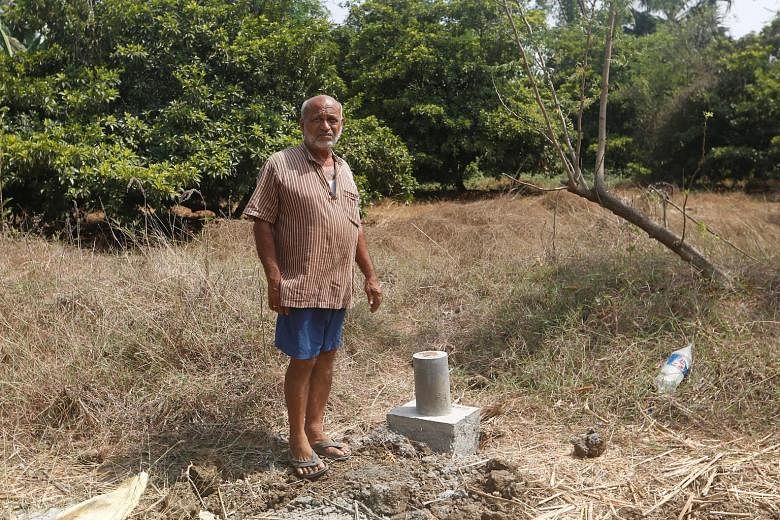TOKYO • India is set to miss a December deadline to acquire land for a Japan-backed US$17 billion (S$23 billion) bullet train project, following protests by fruit growers, government officials said, likely delaying one of Prime Minister Narendra Modi's most ambitious projects.
Mr Modi's office is monitoring the project week-to-week, as Indian officials seek to reassure Tokyo that the hurdles can be overcome through intense negotiations with sapota and mango growers in the western state of Maharashtra.
Protests, backed by local politicians, have flared up in recent months against attempts to secure sections of a 108km stretch, which is around one-fifth of the entire bullet train corridor connecting Mumbai with Ahmedabad, the largest commercial city in Mr Modi's home state of Gujarat.
Objections to land acquisitions are common in India, where tens of millions of farmers till small holdings.
A planned US$44 billion refinery to be run by a consortium including Saudi Aramco, the world's biggest oil producer, is also struggling to secure land in Maharashtra.
"Land acquisition for any project is complex in India," said Mr Dhananjay Kumar, spokesman for the National High Speed Rail Corp Ltd (NHSRCL) that is overseeing the project. "Here also, we are facing difficulty because of so much resistance."
Failure to procure the bullet train land by the deadline would delay disbursal of soft loans by Japan International Cooperation Agency (Jica), a government development body, which is reviewing the project next month, said two senior officials with the state-run Indian Railways.
A Jica spokesman said that India must create relocation plans for local residents and make them public in order to enter into a loan agreement covering the main part of the bullet train project.
To assuage Japan's concerns, Indian officials have sought a meeting this month with transport ministry officials in Tokyo, one of the Indian officials said.
India wants the project's completion target to be advanced by a year to 2022, the 75th year of the country's independence.
Japan is majority-funding the train project through a 50-year loan. Japanese companies such as Nippon Steel and Sumitomo Metal, JFE Holdings, Kawasaki Heavy Industries, Mitsubishi Heavy Industries, Toshiba and Hitachi are likely to supply at least 70 per cent of the core components of the rail line, sources said in January.
Mr Modi has called the project crucial for his pet "Make in India" campaign aimed at lifting the share of manufacturing in India's US$2 trillion economy.
The government also hopes to generate hundreds of jobs through the train project, and hence is pushing hard to finish it on time.
To sweeten the terms for people opposed to selling their land, Indian Railways has put its weight behind NHSRCL, pledging funds from its own welfare scheme to build schools and community halls, one of the officials said.
Mr Ashwani Lohani, chairman of the Indian Railway Board, said the issues with farmers were not insurmountable.
The government has offered to buy land at a 25 per cent premium to the market value, the two government officials said.
Farmers are also being offered resettlement dues of 500,000 rupees (S$9,900) or 50 per cent of the land value, whichever is higher.
However, local political opposition in Palghar, ahead of a general election next year, has fanned the protests. Opponents say the bullet train is wasteful and the money would be better used upgrading the country's rickety rail infrastructure.
REUTERS

